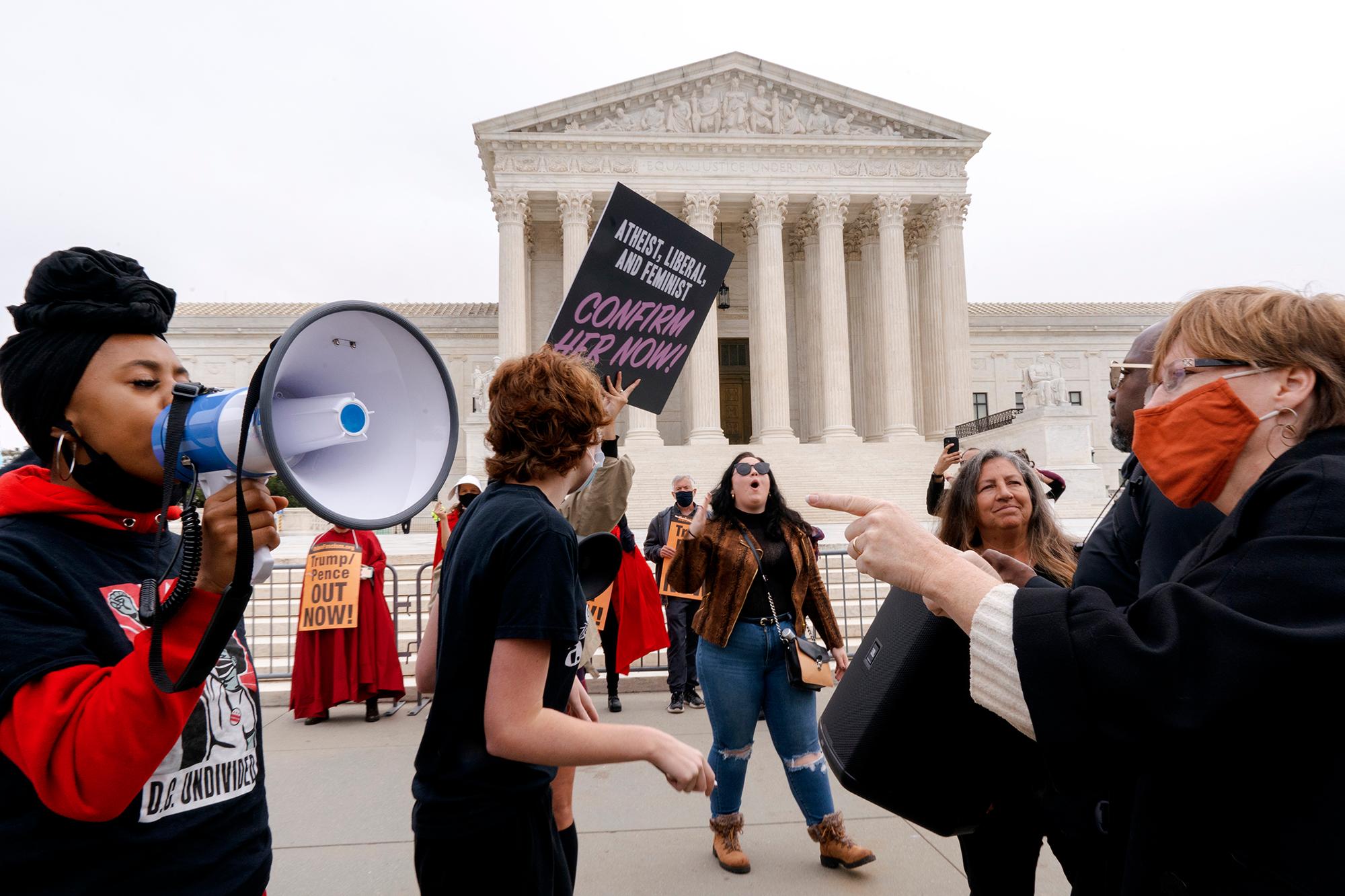
Colorado’s senators followed their parties’ lead when it came to voting Judge Amy Coney Barrett onto the Supreme Court Monday. Democratic Sen. Michael Bennet voted against her confirmation, while Republican Sen Cory Gardner voted for it.
She was confirmed along party lines 52-48, with no Democrats voting for her confirmation.
Bennet and Gardner both took to the Senate floor ahead of the vote, decrying the highly partisan process.
Gardner said Monday afternoon that, “if you can take the politics out of the place, she would probably have a unanimous vote. Unfortunately, the politicization of this nomination is going to prevent that.”
The junior senator, who is locked in a tough reelection fight, focused on Barrett's qualifications, saying they are "immense" and that he was “honored” to vote for her. He also pushed back against those who see a judge as a “super legislator.” He argued the role of the Court is not to make law or fill policy voids, rather to determine legislative balls and strikes.
“If this chamber can’t pass a policy or law, if it can’t have its own victory in carrying the day in an argument,” Gardner said. “It’s not up to a judge or justice to fill in the blank.”
Bennet, who took to the floor Sunday evening during a rare weekend session, also brought up Barrett’s record, noting that she often sided with corporations in business-related cases.
“The pattern is clear: When consumers and workers sought the protection of the law, or the government, she stood in the way,” Bennet said. “I worry that, once confirmed, she will continue that pattern with rulings to destroy hard-won protections for the American people.”
- Video: Judge Amy Coney Barrett Supreme Court Confirmation Hearings, Day 1
- Video: Judge Amy Coney Barrett Supreme Court Confirmation Hearings, Day 2
- Video: Judge Amy Coney Barrett Supreme Court Confirmation Hearings, Day 3
- Video: Judge Amy Coney Barrett Supreme Court Confirmation Hearings, Day 4
- Video: Senate Judiciary Committee Votes To Advance Supreme Court Nomination Of Amy Coney Barrett
He also blasted the politicization of the judicial confirmation process. He laid blame at the feet of Senate Majority Leader Mitch McConnell.
“The Majority Leader — more than any other actor — has transformed what used to be the overwhelming bipartisan confirmation of a qualified nominee — and a bipartisan ratification of the independence of the judiciary — into an entirely partisan exercise,” Bennet said.
The remaking of the judiciary has been a priority for McConnell. After Republicans regained control of the Senate in 2015, he denied many Obama judicial nominees consideration for the bench, including Obama’s 2016 nomination of Merrick Garland to the Supreme Court. In that case, many Republicans, including Gardner, said it was too close to an election and that the American people should have a say.
“It is the sole duty of this chamber to agree or disagree with that nomination," Gardner said Monday.
In 2016, he noted, the chamber didn’t give consent to Merrick Garland, but did to Colorado’s Neil Gorsuch. And now, it has done the same with Associate Justice of the Supreme Court of the United States Amy Coney Barrett.









